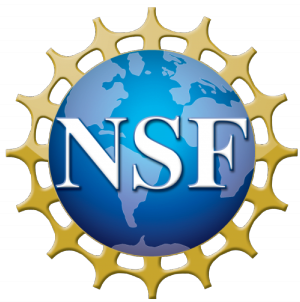August 15th, 2022 - July 31st, 2025 | PROJECT
Despite decades of policies and programs meant to increase the representation of girls and women in science, technology, engineering, and mathematics (STEM), girls and women of color still represent a much smaller percent of the STEM workforce than they do in the US population. This lack of representation is preventing the US STEM workforce from reaching its true potential. Intersecting inequalities of gender, race, ethnicity, and class, along with stereotypes associated with who is successful in STEM (i.e., White men), lead to perceptions that they do not belong and may not succeed in STEM. Ultimately, these issues hinder girls’ STEM identity development (i.e., sense of belonging and future success), lead to a crisis of representation for women of color and have compounding impacts on the STEM workforce. Research suggests there are positive impacts of in-person STEM learning after-school and out-of-school time programs on girls’ sense of belonging. The increasing need for online learning initiated by the COVID-19 pandemic means it is vital to investigate girls’ STEM identity development within an online community. Thus, the project will refine and test approaches in online learning communities to make a valuable impact on the STEM identity development of girls of color by 1) training educators and role models on exemplary approaches for STEM identity development; 2) implementing a collaborative, girl-focused Brite Online Learning Community that brings together 400 girls ages 13-16 from a minimum of 10 sites across the United States; and 3) researching the impact of the three core approaches -- community building, authentic and competence-demonstrating hands-on activities, and interactive learning with women role models -- on participating girls’ STEM identities in online settings.
The mixed methods study is guided by guided by Carlone & Johnson’s model of STEM identity involving four constructs: competence, performance, recognition, and sense of belonging. Data collection sources for the quantitative portion of the project include pre- and post-surveys, while qualitative data sources will be collected from six case study sites and will include observations, focus group interviews with girls, artifacts created by girls and educators, educator interviews, and open-ended survey responses. This approach will enable the research team to determine how and the extent to which the Brite Online Learning Community influences STEM identity constructs, interpreting which practices lead to meaningful outcomes that can be linked to the development of STEM identity for participating girls in an online environment. The products of this work will include research-based, tested Brite Practices and a toolkit for fostering girls’ interest, identification, and long-term participation in STEM. The resulting products will increase the reach of informal STEM education programming to girls of color across the nation as online spaces can reach more girls, potentially increasing the representation of women of color in the STEM workforce.
Project Website(s)
(no project website provided)
Project Products
2023 AISL Awardee Mini-Poster: 2215138
Team Members
Roxanne Hughes, Principal Investigator, Florida State UniversityKaren Peterson, Co-Principal Investigator
Abimbola Olukeye, Co-Principal Investigator
Qian Zhang, Co-Principal Investigator
Funders
Funding Source: NSF
Funding Program: Advancing Informal STEM Learning (AISL)
Award Number: 2215138
Funding Amount: $1,902,274.00
Tags
Access and Inclusion: Ethnic | Racial | Low Socioeconomic Status | Women and Girls
Audience: Learning Researchers | Middle School Children (11-13) | Museum | ISE Professionals | Youth | Teen (up to 17)
Discipline: General STEM
Resource Type: Project Descriptions
Environment Type: Afterschool Programs | Media and Technology | Public Programs | Websites | Mobile Apps | Online Media

